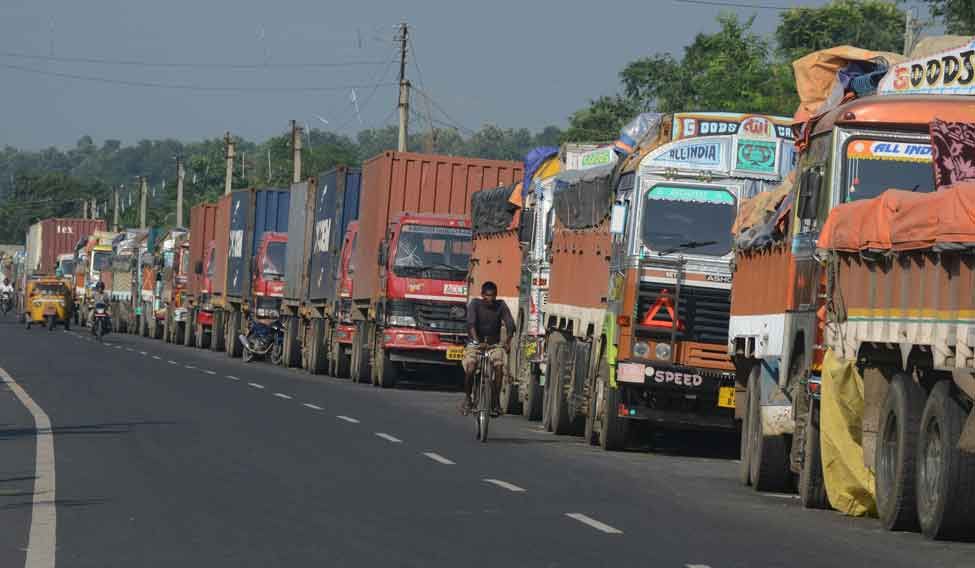The highest indirect tax body in the country, today deliberated on the readiness of the central e-way bill and the issue of states implementing their own e-way bills for goods movement in the interim period.
After a video-conference meeting held from the North Block by Finance Minister Arun Jaitley along with GST Council administrative head Hasmukh Adhia, state finance ministers and secretaries, an official release said that, "The nationwide e-way bill system will be ready to be rolled out on a trial basis latest by January 16, 2018."
It said that traders and transporters can start using this system on a voluntary basis from then.
The rules for the final implementation of the nationwide e-way bill would however be finalised by February next year.
The government said that it has taken a note of the difficulties caused to truckers and transporters in the interim and is working to speed up things on this front.
Some states like Uttar Pradesh, Karnataka, Maharashtra and Rajasthan have already implemented their own system of e-way bills causing havoc among national and inter-state transporters.
On Saturday, after the GST Council meeting the government clarified that states may choose their own timings for the implementation of e-way Bill for intra-state movement of goods on any date before June 1, 2018.
"There are certain states which already have a system of e-way bill for intra-state as well as inter-state movement and some of those states can be early adopters of national e-way bill system for intra-state movement also."
The GST Council chaired by Arun Jaitley said that in any case, the uniform system of e-way bill for inter-state as well as intra-state movement will be implemented across the country by June 1, 2018.
Simply put the e-way bill is a document that is used for inter-state movement of goods. Once the centralised e-way bill system is properly implemented, goods movement across the country would become seamless.
The e-way bill would replace the existing system of carrying tax challans for movements of goods taking place within the country. Once implemented, it would bring in benefits of GST for not only transporters, but also to goods consignors.
The e-way bill format is currently not ready and an integration of its software is also due. Meanwhile, certain rules that would govern the centralised e-way bill system are yet to be finalised by the GST Council and formalised by the government.
Earlier, a GST advisory committee had sought deferment of the e-way bill and adopt possible alternatives as suggested by the GST advisory committee recently.
However, it seems that GST council also believes that immediate enforcement of the system is necessary to check tax evasion.
"It is now important to ensure that all states have common e-way bills and suggestions made by industry for simplification are taken into consideration," said Pratik Jain, indirect tax leader, PricewaterhouseCoopers India.
If implementation of this system is not done properly, it could lead to significant supply chain bottlenecks and somewhat dilute the objective of 'one nation, one tax' system.






